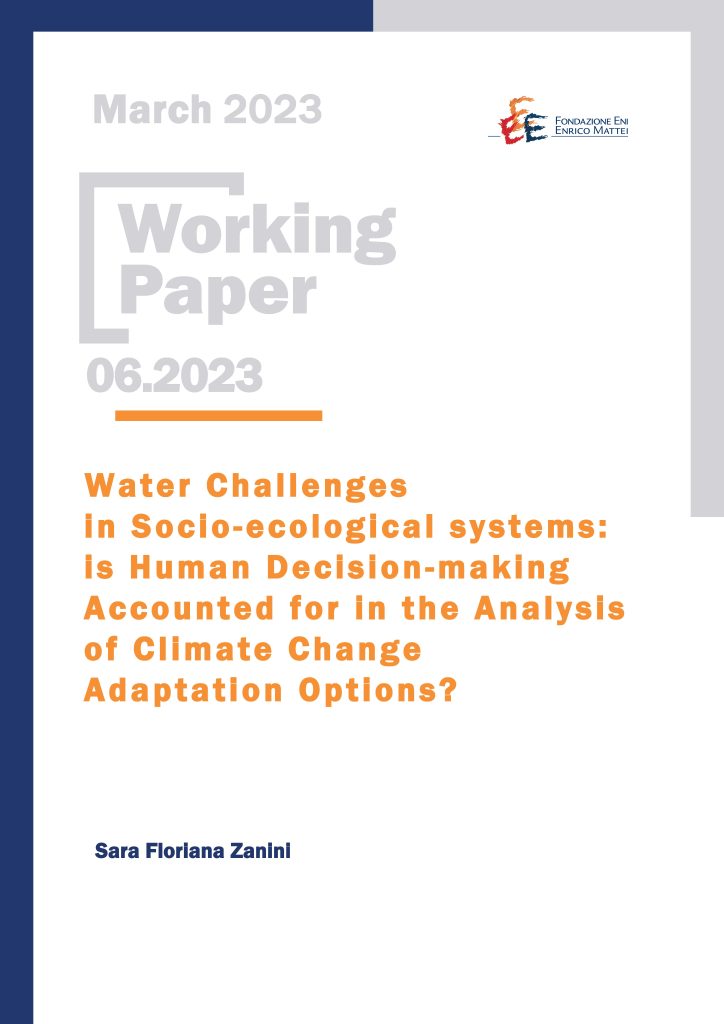Water challenges in socio-ecological systems: is human decision-making accounted for in the analysis of climate change adaptation options?

10.03.2023
Sara Zanini (Department of Management, Ca’ Foscali University and Fondazione Eni Enrico Mattei)
D80, D90, Q25, Q54
Human behaviour, decision-making process, climate change adaptation, water resources
This mixed-method systematic review is motivated by the willingness to identify the efforts of the most recent developments of the literature on the understanding of water challenges in socioecological systems, particularly coastal ones. The attention, in the exercise, is directed at the analysis of individual and collective decision-making processes concerning the use of the environmental good. This is because ultimately, if it is true that water resources are affected by external trends and shocks, it is also relevant how distinct paths of local and regional level responses impact on resource status. The inquiry, departs from a conceptual point of view mainly pinpointing scholars’ already proposed method- ological solutions for the concern, being them mostly participatory modelling excercises, bayesian net- work analyses, multi-agent games and experiments and finally integrated assessment models. Even if methodological tools with a potential to explicitly represent human decision-making coupled with its connection with the natural environment do exist, these methods are found to be relatively superficially articulated in interdisciplinary water management analyses. Particularly, the study explores to what extent is the human behaviour, in relation to water resources, included into the extant analyses.
***
Suggested citation: S. Zanini, ‘Water challenges in socio-ecological systems: is human decision-making accounted for in the analysis of climate change adaptation options?’, Nota di Lavoro 06.2023, Milano, Italy: Fondazione Eni Enrico Mattei
